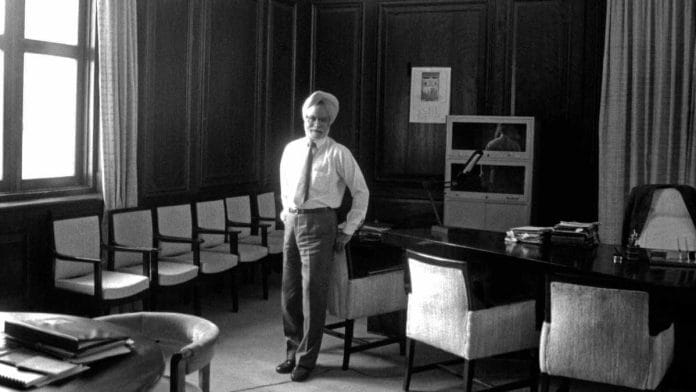New Delhi: Former Prime Minister Manmohan Singh has passed away, aged 92, the All India Institute of Medical Sciences (AIIMS) New Delhi said in a press statement Thursday.
“He was being treated for age-related medical conditions and had sudden loss of consciousness at home on 26th December 2024,” read the statement.
It added that “resuscitative measures were started immediately” at Singh’s residence in the capital and he was “brought to the Medical Emergency at AIIMS at 8.06 pm”. But, despite all efforts, he could not be revived and was “declared dead at 9.51 pm”.
A veteran Congressman, Singh is survived by his wife and three daughters.
President Droupadi Murmu in a statement issued by Rashtrapati Bhavan mourned Singh’s demise, referring to him as “one of those rare politicians who also straddled the worlds of academia and administration with equal ease”. The statement added, “In his various roles in public offices, he made critical contributions to reforming the Indian economy.”
“India mourns the loss of one of its most distinguished leaders,” Prime Minister Narendra Modi wrote in a post on ‘X’, adding that Singh left a “strong imprint on our economic policy over the years” and “made extensive efforts to improve people’s lives”.
India’s fourteenth Prime Minister, Singh was born on 26 September, 1932, in a village in undivided Punjab. He first became a part of government in 1971 as economic adviser in the Ministry of Commerce. In 1972, he was appointed chief economic advisor in the Ministry of Finance. He also served as deputy chairman of the Planning Commission, governor of Reserve Bank of India (RBI) and chairman of the University Grants Commission (UGC).
Singh was hailed as the architect of the 1991 economic reforms introduced in his landmark budget speech delivered as finance minister in the Narasimha Rao government (1991-96).
He concluded his iconic Budget speech with the words: “Sir, I do not minimise the difficulties that lie ahead on the long and arduous journey on which we have embarked. But as Victor Hugo once said, ‘no power on earth can stop an idea whose time has come’. I suggest to this august House that the emergence of India as a major economic power in the world happens to be one such idea. Let the whole world hear it loud and clear. India is now wide awake. We shall prevail. We shall overcome.”
As Prime Minister for two consecutive terms (2004-2014), he was credited for, among other things, manoeuvring opposition from political allies, particularly the Left, to ensure passage of the US-India civil nuclear agreement.
A seasoned parliamentarian, he was a six-time Rajya Sabha Member of Parliament from Assam and later from Rajasthan. His final term as a member of the Upper House ended in April this year. He served as Leader of the Opposition in the Rajya Sabha from 1998-2004.






